For Jeanie Barbagiovanni, a Perth single mother-of-seven, the federal government’s coronavirus supplement changed everything.
“Life was so different. It was so much better,” Ms Barbagiovanni said.
“I bought the kids a computer because we needed something to do homeschooling with.
“That money also went towards getting my licence. I was doing lessons and saving up for a car.
The supplement also helped her get back into the workforce, because she was able to tell prospective employers that she had a car and a licence, and she knew she could get to work.
“They always say [on job applications] — have you got a licence? And if you say no, then half the time, people don’t want someone that has no licence because that’s an issue [with getting to work],” she said.
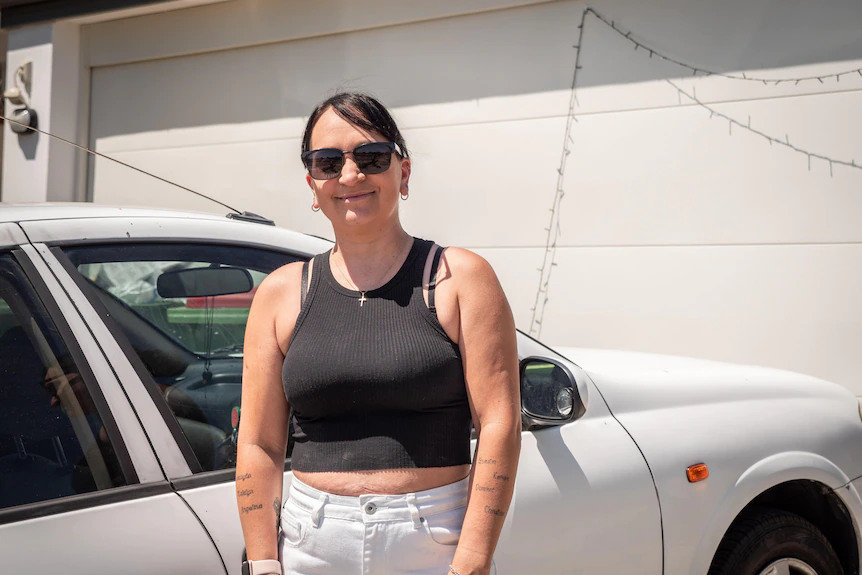
It also meant she could do things for her own mental wellbeing and for her family, like taking her children on outings and visiting her father’s grave.
“My dad passed away three years ago. I had to depend on other people to take me out there, so I stopped going,” she said.
“But having a car means I can just get in the car and just drive out and sit out there with him. It’s really important.”
Supplement stopped and stress returned
Since the $550 a fortnight top-up came to an end in March last year, the mental load of juggling an income that doesn’t cover her expenses came back.
“Every night I lie in bed, and I think what I have to do tomorrow, who I have to ring up, what do we need at home,” she said.
“Sometimes I have to choose to whether to pay the bills or buy food … I’m a parent; I’m obviously going to buy the food.
“The bills are going have to wait, that’s why they just kept going up and up.”
Making the rate an election issue
The Western Australian Council of Social Services (WACOSS) wants to make the situation facing people like Ms Barbagiovanni top of mind during the federal election campaign, saying the period when the coronavirus supplement was in place proved the rates of income support need to be higher.
“We need at least an increase of $24 a day; bring it up to about $66 a day [for a single person],” WACOSS chief executive Louise Giolitto.
“Our cost-of-living report actually demonstrates that a single person is short by $30 a week to cover the basic cost of living [on the current rate].”
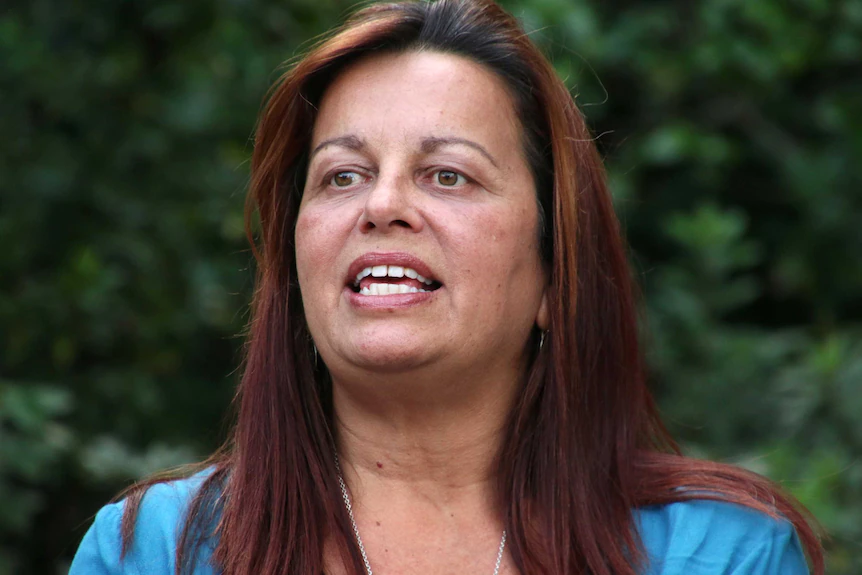
Other advocates go further – the Australian Unemployed Workers Union argues the supplement needs to be at least $80 a day, based on the Henderson poverty line, a benchmark income set in the 1970s required to support the basic needs of a family of two adults and two dependent children.
Ms Giolitto said income support would be a key issue for welfare agencies in the lead-up to the federal election, because neither of the major parties had given any commitments to raising rates.
In March 2021 when the federal government removed the coronavirus supplement entirely, it raised the base rate of JobSeeker by $25 a week.
“They gave an additional $3.60 per day and there’s no further commitment beyond that,” Ms Giolitto said.
“While they acknowledge it’s not enough, they haven’t given a firm commitment of what it will actually be, what price tag they’re putting on this.”
WACOSS is also arguing for a doubling of Commonwealth rent assistance to keep pace with the increasing cost of housing around Australia.
Choosing between food and utility bills
For Ms Barbagiovanni, the drop in income means even simple things, like buying her children new shoes for the school year and the new uniform her son has to wear in year 11, are now out of reach.
“At the moment I’m struggling most with bills,” she said.
“If the car had to be put into the shop to get fixed, I wouldn’t know what to do, because I wouldn’t have the money to put it in to get fixed. That’s just how it is.”
Ms Barbagiovanni has an $11,000 power bill that has dogged her ever since she escaped a violent relationship six years ago. She can’t see how it will ever be cleared.
“There’s no way in the world that I can pay $11,000 for my power.
“It’s been years and years. just adding up. I can put a bit of money on it each fortnight and I have to ring them up today again, and say, ‘Sorry, there’s no way that I’ve got this money’.”
Having so many people unable to cover essentials places stress on other community services as well, as people turn to food relief and charities when they have to choose between paying bills or buying food, which Ms Giolitto said could lead to increased costs for government down the track.
“We found when we doubled income support, people could live with dignity, pay their bills, but also obtain the medical treatment they needed, so they weren’t ending up in emergency rooms,” she said.
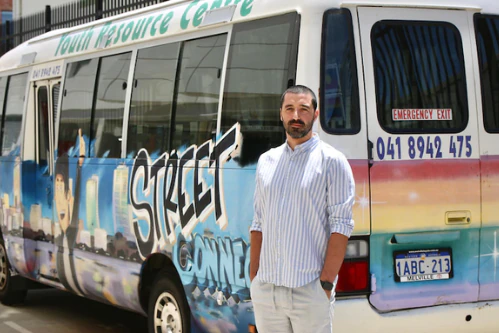
Anglicare WA youth housing manager John Thomson said the service now fielded regular requests from young people to cover their costs.
“We see young people coming and asking for help to meet basic medical bills so that they can complete their studies. They need glasses, but they can’t afford an optician,” he said.
“They can’t afford to do those basic things that they actually need to be able to get through in life.”
‘People want to do it themselves’
Alex Hughes is the project manager of a research initiative called 100 Families WA, jointly funded by 10 charities and universities, that studies how to improve support through directly talking to people living in disadvantage.
He said the improved autonomy gained through the coronavirus supplement had proved a catalyst for change and made the case for raising the rate.
“Fifty-two per cent reported a higher quality of life, that they could buy food adequate enough for their kids, and better-quality food, they could start to get on top of debt, ,” Mr Hughes said.
“That was a catalyst for other things like starting to seek employment.”
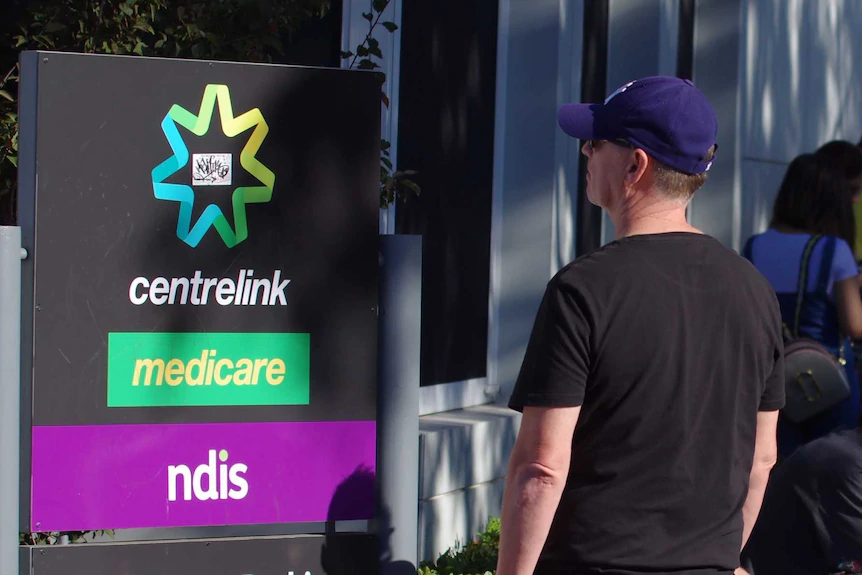
He said that while the government’s JobSeeker payment was set at a rate that was meant to be an incentive for people to get back into work, in reality it was too low for people to do that.
“That little window in time actually changed people’s lives, and allowed people to live with dignity, to have more freedom, and to make improvements.”
He said that talking to families about their experience both on and off the increased payments had revealed important lessons not just for government, but also the charity sector.
“It’s about community capacity building, helping people to set their own goals and helping them to reach those goals, rather than us dictating, ‘This is where you need to be, and this is what you need to do’.
“We’re hoping this evidence can support changes in federal government, changes in state government, and also changes on a community service sector point of view.”
‘Even $100 makes a difference’
Jeanie Barbagiovanni says she’d like to see income support increased again.
“It makes people’s lives so much easier, even if they give that little bit extra, even $100 is a help,” she said.
“Maybe it’s not to a lot of people out there, but to me, it is.”
But for now, after a taste of a better life, she’s putting her hopes into finding more work.
Her first job came after she volunteered at her children’s primary school canteen and was asked to fill in when the manager went on leave.
“I was managing the whole canteen, all the kids depended on me. I did the banking, ordering, putting stock away, doing the cooking, everything,” she said.
“After that I thought, ‘You know what, I really love this feeling of working and having that extra money’.
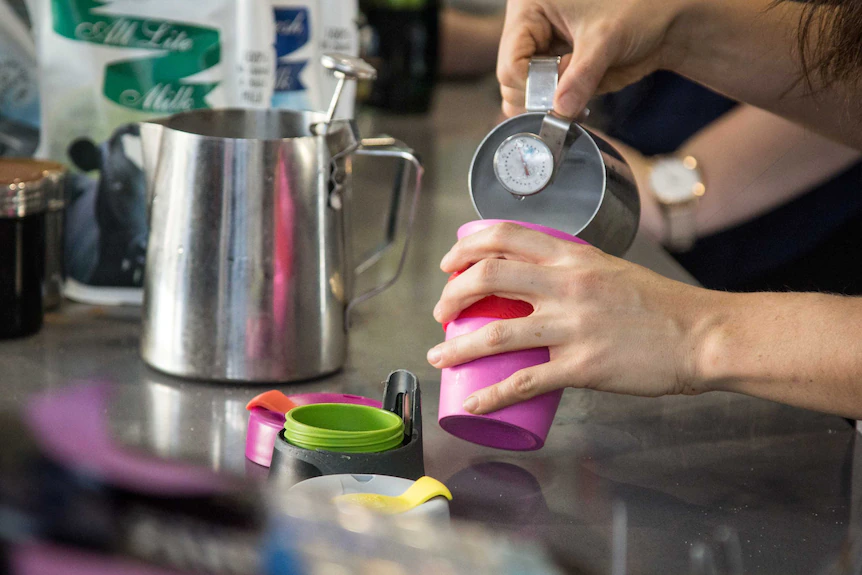
She found another job at a nearby cafe but lost it when the business closed after four months. She then got work at an Italian restaurant, but recent coronavirus outbreaks and restrictions have hit that business too, and her shifts have dwindled to nothing, so she’s searching again.
“I’m looking anywhere, it doesn’t really matter. I need a job for my mental state and to support my kids.”
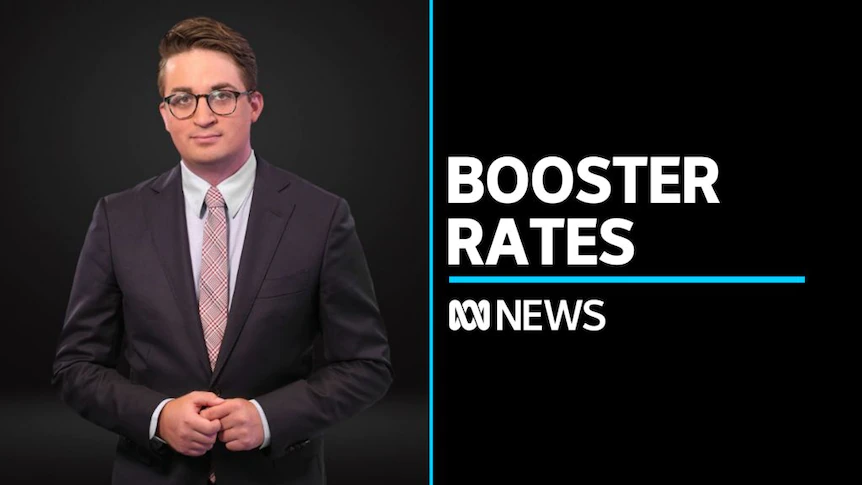
Loading form…

